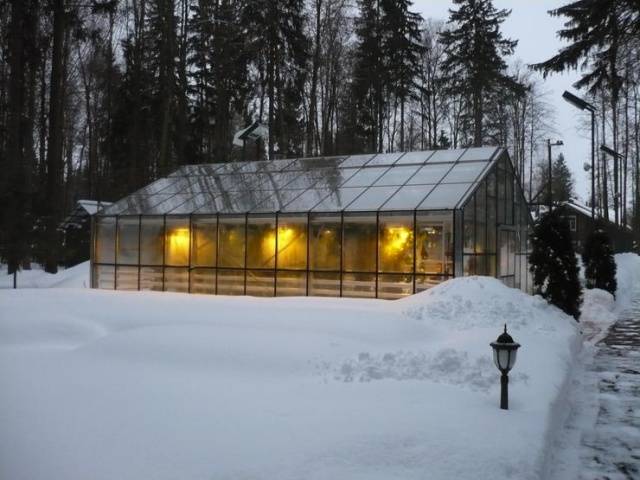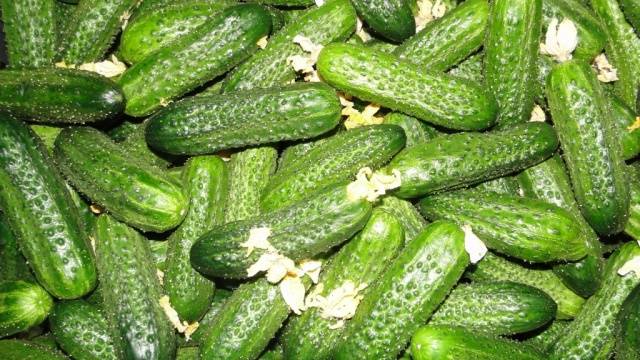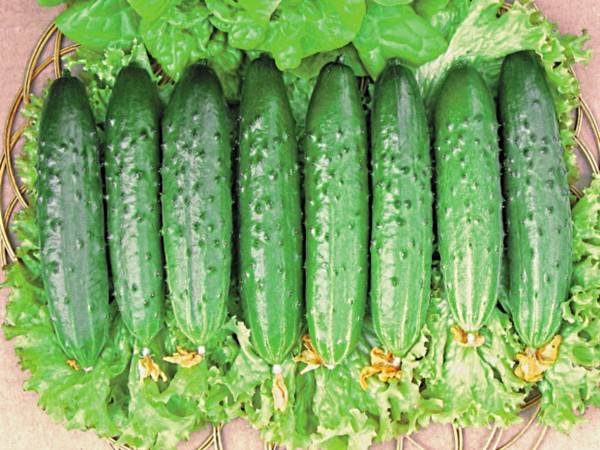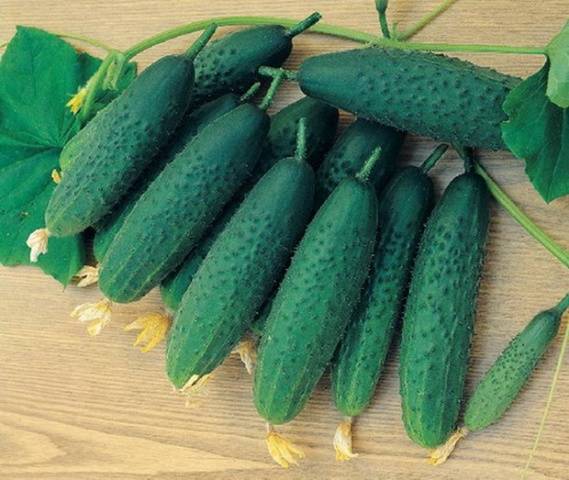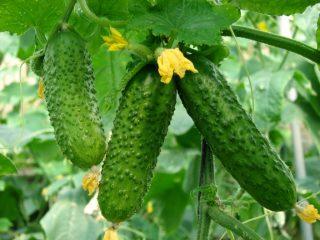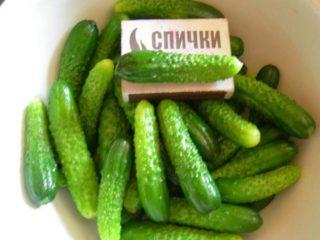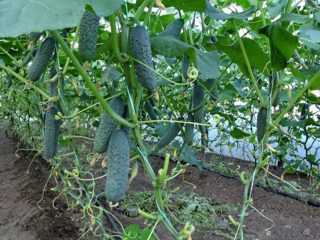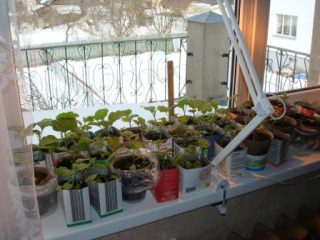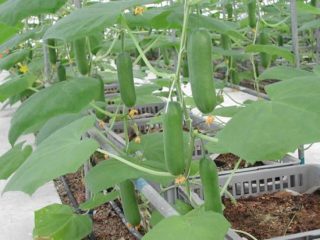Content
Cucumber is a familiar crop for us; it is heat-loving and unpretentious. This allows you to grow it almost all year round. The cucumber season in the garden beds begins in mid-spring and ends in autumn. Is it possible to grow cucumbers in winter? Of course it is possible! Sometimes amateurs manage to do this in apartments on the windowsill, but we recommend creating heated greenhouses.
Requirements for a winter greenhouse
Before we talk about the varieties that can and should be grown in winter, let's talk directly about where our crispy vegetables will grow - about greenhouses. Since the winter season involves a number of peculiarities in cultivation, certain requirements are imposed on greenhouses:
- electricity will need to be supplied to the greenhouse; its source should be located nearby;
- the area where the object will be placed must be level (if there is a slight slope, make sure that it is not facing north);
- additional barriers are created from strong gusty winds, which are dangerous for plants in winter;
- it is necessary to create a source of irrigation water nearby;
- the best ratio of area to volume of a winter greenhouse is 1 to 2;
- The material can be polycarbonate, glass or multilayer film (only for southern regions).
Taking these requirements into account, it is possible to build several winter greenhouses. The best varieties that are resistant to such conditions will be grown in a short period.
Preparation of soil composition
The composition of the soil is of great importance. Two types of soil are suitable for growing cucumbers in winter:
- Based on peat (at least 50% with the addition of compost in an amount of 20% or more);
- Based on turf soil (with a mixture of humus).
Before planting seeds, it is necessary to treat with copper sulfate 0.5 liters of a 7% aqueous solution per 1 m2. After three weeks, the soil is dug up and compost is added. Enrichment is carried out either through mineral fertilizers or through wood ash.
The beds are formed in a special way from north to south. This will increase the plant's resistance to disease and produce the best fruit you've ever seen.
Selection of varieties
In order for cucumbers to grow well in winter and produce an excellent harvest, it is not enough to build a good greenhouse. Choosing a variety is the most important stage for growing cucumbers in winter. The choice is influenced by the following nuances:
- lack of moisture during this period;
- absence of insects;
- small amount of light.
All this suggests that to grow in a greenhouse in winter, the cucumber variety must be resistant, productive, self-pollinating. Fortunately, such varieties of cucumbers are widely represented on the market today.
Classification
Let’s immediately determine those varieties that are suitable for growing in greenhouses in winter. Let's divide them into groups:
- self-pollinating cucumber variety;
- variety unpretentious to conditions;
- shade-tolerant varieties of cucumbers.
Below is a table with the names of varieties for these categories. These are the best varieties to date.
Group | Varieties |
|---|---|
Self-pollinating | Cheetah F1, Courage F1, Dynamite F1, Orpheus F1, Calendar, April, Swallowtail, Lilliputian, Zozulya F1, Anyuta F1, Hummingbird, salad Hercules |
Unpretentious | Zarya, Grenade, Surprise 66 |
Shade-tolerant | Russian, Manul F1, Iva, Danila F1, Arina F1, Home, F1 Olympics, Moscow Nights F1 |
The choice is really very large, and these are only popular varieties, the best of the best. Cucumbers can be planted in the ground at any time of the year. The owner of a winter greenhouse can receive fresh fruits both by the New Year and by the beginning of spring.
To achieve a good harvest, it is necessary not only to choose the right seeds, but also to strictly follow the growing technology. We'll talk about her later. Let's look at several varieties of cucumbers in more detail.
Description of some varieties
We present to your attention the three most popular varieties of cucumbers that can be grown in a greenhouse in winter. These are the varieties Kurazh, Danila and Zozulya.
"Courage"
It is distinguished by its high yield; many gardeners know it. The characteristics are shown in the table.
Group | hybrid |
|---|---|
Advantages | early ripening, high yield |
Pollination method | parthenocarpic |
Sustainability | resistant to many diseases |
Description of the fruit | the average weight of the fruit is 130 grams, oval-cylindrical shape, length 15-16 centimeters |
Growing technology | seeds are sown to a depth of 3-4 centimeters according to the 50x50 pattern |
Plant | medium-sized, has 2-5 ovaries, fruiting no later than 44 days |
Productivity | 6-8 kilograms |
"Zozulya"
It is early ripening and also has high productivity.
Group | high-yielding hybrid |
|---|---|
Advantages | early ripening with high yield |
Pollination method | parthenocarpic |
Sustainability | resistant to most cucumber diseases |
Description of the fruit | large cucumbers up to 200 grams inclusive, cylindrical in shape with sparse tubercles |
Growing technology | seeds are sown to a depth of 1.5-2 centimeters according to the 50x30 pattern |
Plant | medium size with low climbing, requires good watering and mineral fertilizers |
Productivity | up to 16 kilograms per 1 m2 |
"Danila"
Bee-pollinated hybrid variety. Even in the winter months it produces an excellent harvest in greenhouses. Please note that this variety is pollinated by bees. Self-pollination is a long and complex process.
Group | high-yielding hybrid |
|---|---|
Advantages | mid-early with high yield |
Pollination method | bee-pollinated |
Sustainability | to downy mildew and cladosporiosis |
Description of the fruit | cylindrical shape weighing up to 110 grams without bitterness and with large tubercles |
Growing technology | seeds are sown to a depth of 3-4 centimeters according to the 50x30 pattern |
Plant | The bush is powerful green, begins to bear fruit no later than 60 days |
Productivity | from 370 centners per hectare |
Growing technology
Of great importance for the yield of the plant is compliance with the technology of growing cucumber from seeds. Remember that cucumbers love fertile, fertilized soil. Even when grown in greenhouses, it will be necessary to calibrate and disinfect in advance. Seeds are often planted first at home while the soil is being prepared in greenhouses.
In addition, the best fruits grow when the soil is properly heated. It should reach 22 degrees, no less. Each variety described above requires this rule to be followed.
Below is a video with tips for beginners on growing cucumbers in winter in greenhouses. Regardless of which variety is chosen, please note that seeds two years old give greater yield.
A month after emergence, the cucumbers are transplanted into beds, after watering them. By planting plants too close to each other, you will interfere with ventilation in the room. Remember that heating in greenhouses, whatever it is, dries out the air. It will be necessary to create additional sources of moisture so that the cucumbers feel comfortable in the beds.
The varieties described above are resistant, however, do not forget that cucumber is a heat-loving crop. Even in winter, it is necessary to create favorable growing conditions in the greenhouse. This is the key to getting a rich harvest.

